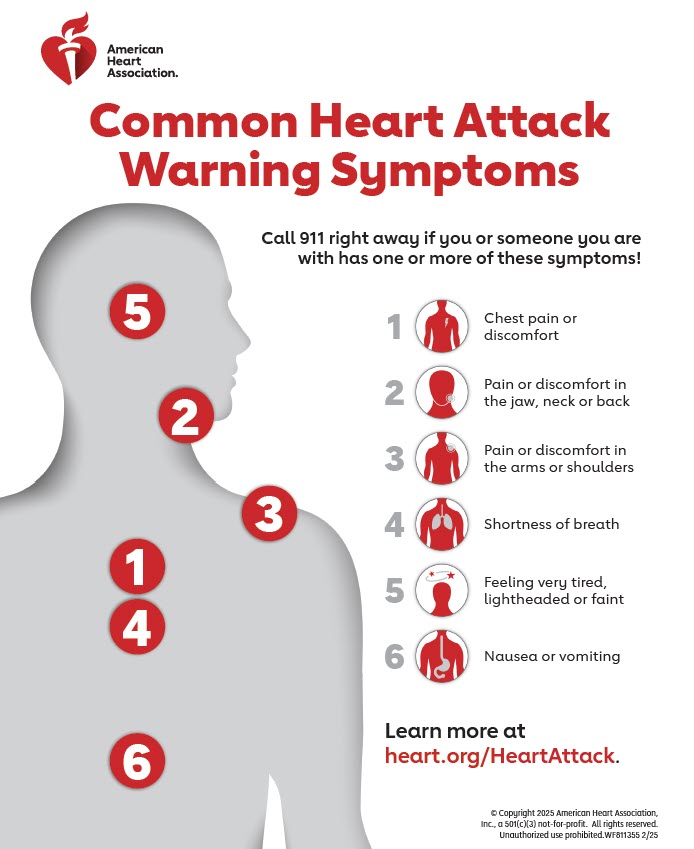Find out before it kills you
By American College of Physicians
A new cross-sectional study used the Predicting Risk of Cardiovascular Disease EVENTs (PREVENT) equations to assess population-wide risk for heart failure (HF) and related factors.
Findings indicate that 15
million U.S. adults have an elevated risk for HF, including 4.3 million who
were not flagged as high-risk for other forms of heart disease. The study was
published today (December 16) in the Annals of Internal Medicine.
Researchers from the University of Pittsburgh and their
colleagues analyzed data from 4,872 adults aged 30 to 79 years without
known cardiovascular disease (CVD), using information from the 2017
to March 2020 cycle of the National Health and Nutrition Examination Survey
(NHANES). They applied the American Heart Association’s PREVENT equations to
estimate the 10-year risk for HF and atherosclerotic cardiovascular disease
(ASCVD) across a sample representing 143.2 million U.S. adults.
The study found that the average estimated 10-year HF risk was 3.7%, with 15 million adults facing a risk above 10%. While most individuals at high HF risk also had a high ASCVD risk, 4.3 million Americans with low ASCVD risk were still considered at high risk for HF.
Among those at elevated HF risk, 62% were between ages 70 and 79, and 14% were Black adults. Additionally, over half of those at risk had high blood pressure, and more than half were overweight or obese.
The results highlight the critical role of managing
hypertension and promoting weight loss in reducing HF risk. The researchers
recommend that future studies explore HF prevention strategies, including
improved screening protocols and targeted interventions for high-risk
populations.
Reference: “Clinical Characteristics and Current Management
of U.S. Adults at Elevated Risk for Heart Failure Using the PREVENT Equations:
A Cross-Sectional Analysis” by Jeremy B. Sussman, Linnea M. Wilson, James F.
Burke, Boback Ziaeian and Timothy S. Anderson, 16 December 2024, Annals
of Internal Medicine.
DOI:
10.7326/ANNALS-24-01321
